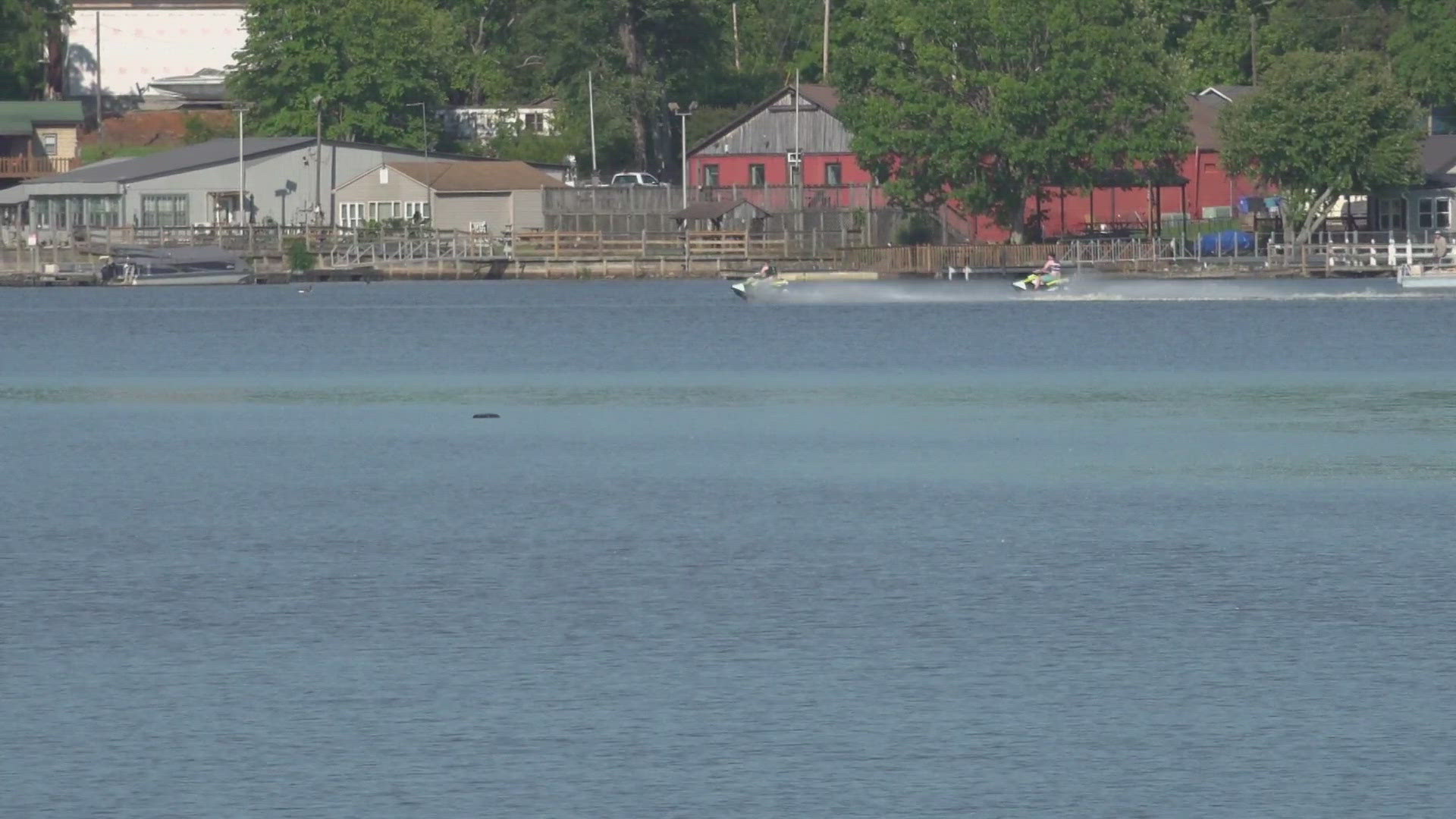NORTH CAROLINA, USA — Experts say now is the time to refresh your water safety before getting back in.
Executive Director of Aquatics with YMCA NW NC, Aaron Reeves, stressed the importance of NOT swimming solo.
"Don't swim alone unless there is someone there to watch you. Make sure that children are being supervised, that someone's always there to watch them and if you have those that are inexperienced, it's always safer to wear a life jacket, one that's Coast Guard approved and for the really little guys, make sure you got one that has that strap that goes between the legs and clips in there so they don't slip through that jacket," Reeves said.
He also emphasized the importance of having life vests around, making sure the fit and can support you in any activity, like tubing or white water rafting for example.
Chief of Police with Eden's Police Department, Paul Moore, said it's important to keep in mind your swimming abilities, as many people have been getting back in the water for the first time since last summer.
He said it's crucial to check back in with what your body is able to do, so you know how hard to push it, "Know your skill, know your level, if you're a weak swimmer, if you can't swim, the rivers not the place for you. Swim with someone, wear a life vest, and know your skills and abilities," Chief Moore said.
But that's not all; Reeves said he really pushes parents to get kids comfortable with, in, and around water. If you can, it's best to put children into swimming lessons as soon as possible.
"Really, as long as they've got good, core body control, if they can sit up on their own, getting them introduced through a "mom and talk class" is a great opportunity to start that water introduction in a swimming pool and really, I mean you just continue that all the way through your life, just continuing to work on your skills and practicing," Reeves said.
Chief Moore said that you don't only have to worry about danger inside a body of water but also around it. Just as kids are told "not to run around the pool," the same goes for lakes and beaches. Often, there are jagged rocks or slippery surfaces that could also cause problems.
"Be careful, you know, walking on and climbing on slippery rocks; make sure you're not going in by yourself, right? The rocks are slippery; you fall, you hit your head, and there's no one there to give aid… these things happen. They've happened here, they've happened here in recent years, you know, make sure you take proper precautions," Chief Moore said.
So many times someone is drowning, someone else goes in to save them, and then that person ends up drowning, it's something Reeves said you should never do.
"We don't need two people that are struggling or two people that are in the process of drowning, two victims… the biggest thing is, you can throw something to them to help them float, if you're at a campsite, there's plenty of things that can float, you empty your cooler, you throw that out at them, and it will help from that standpoint," Reeves said.
CDC data shows drowning is the leading cause of accidental death in children between one and four. It's the second leading cause in children under 15.

